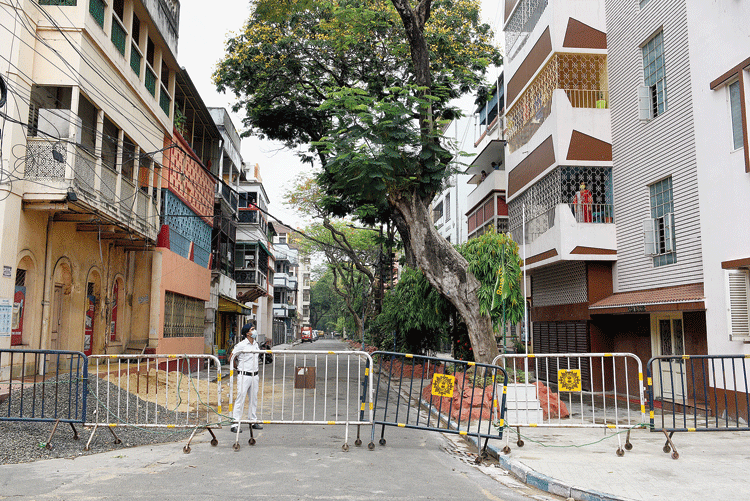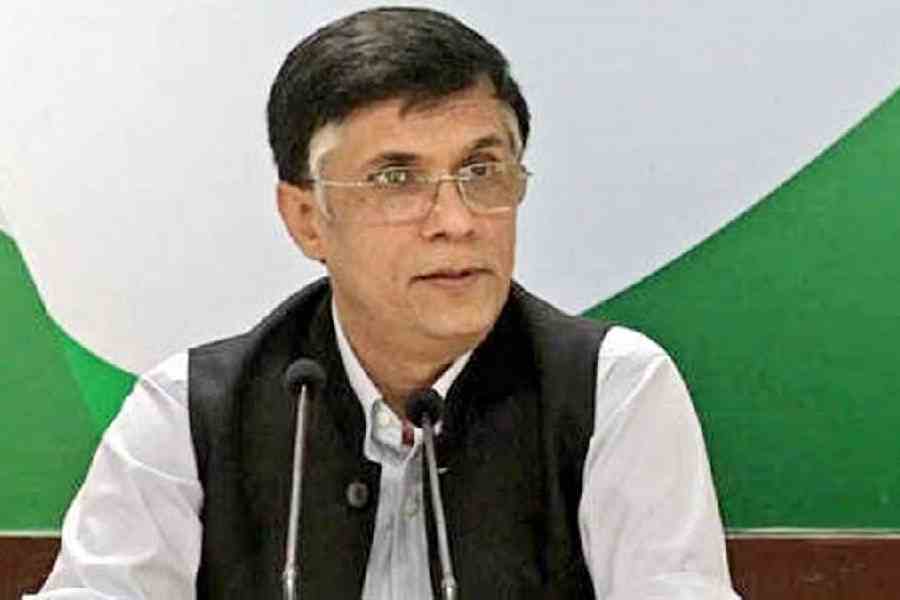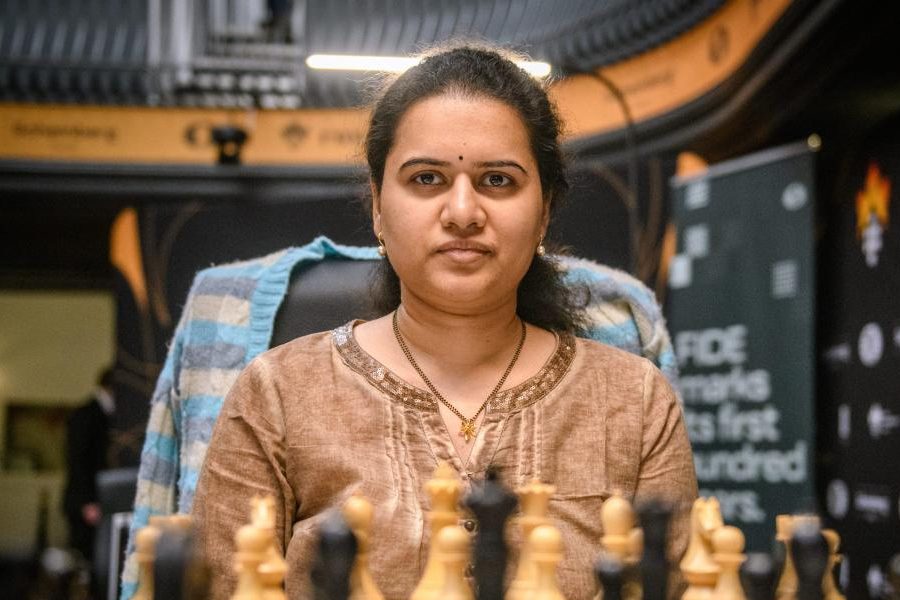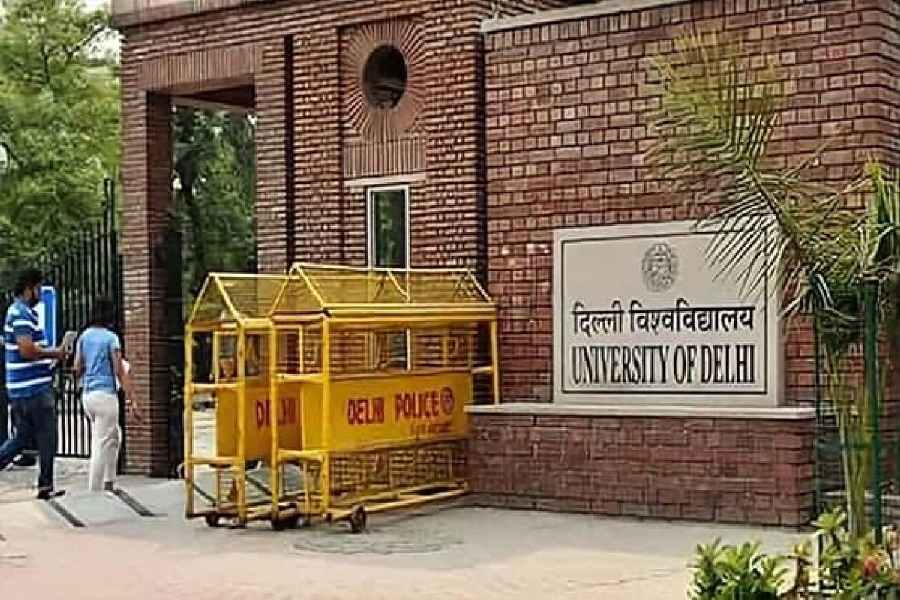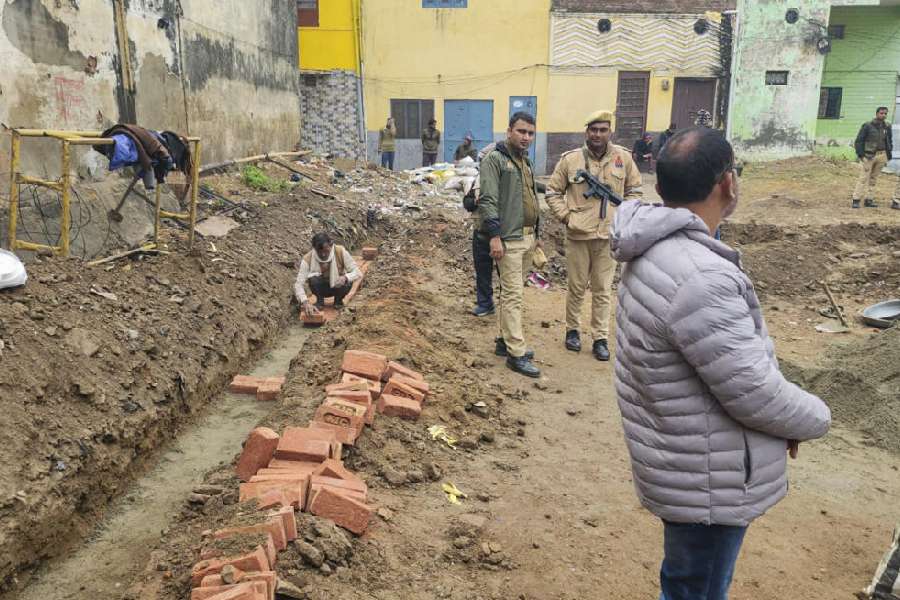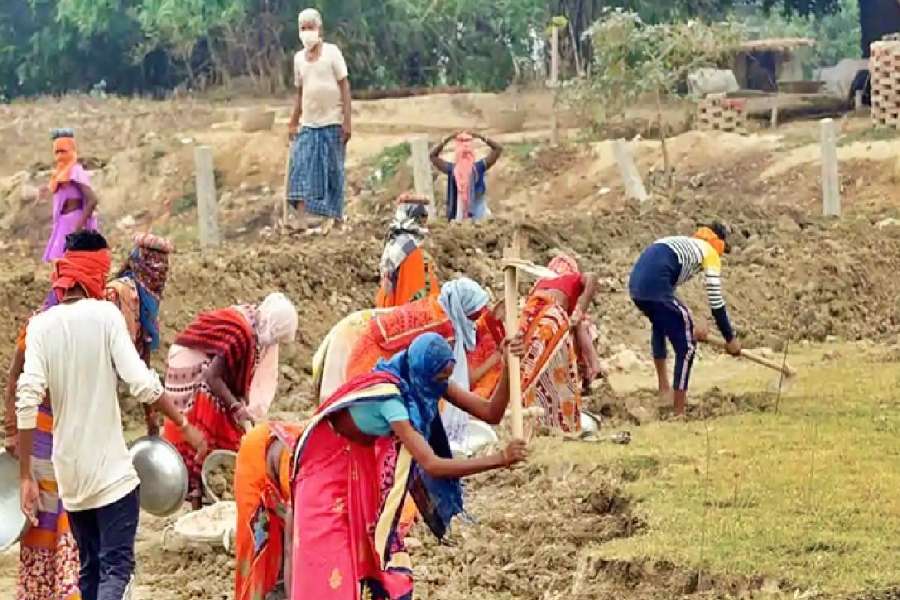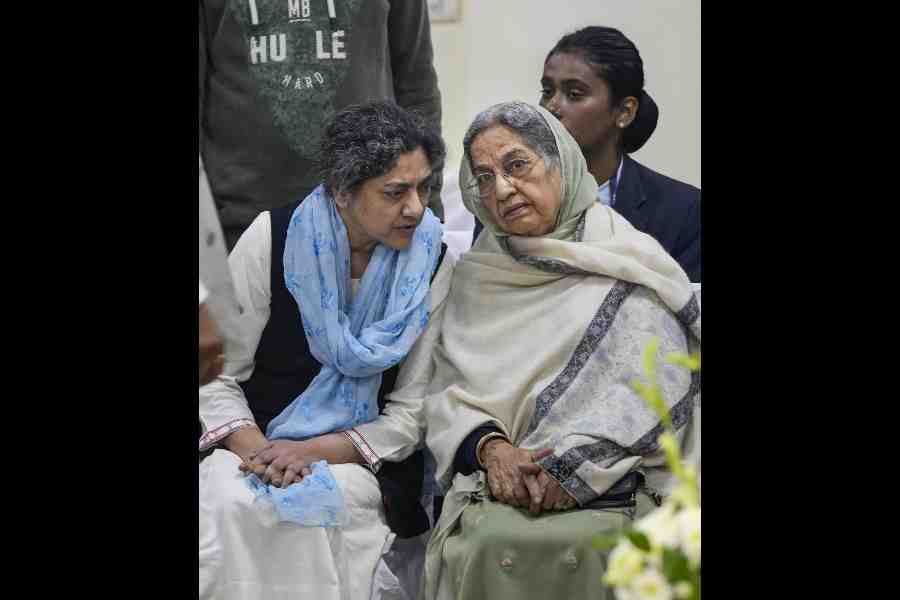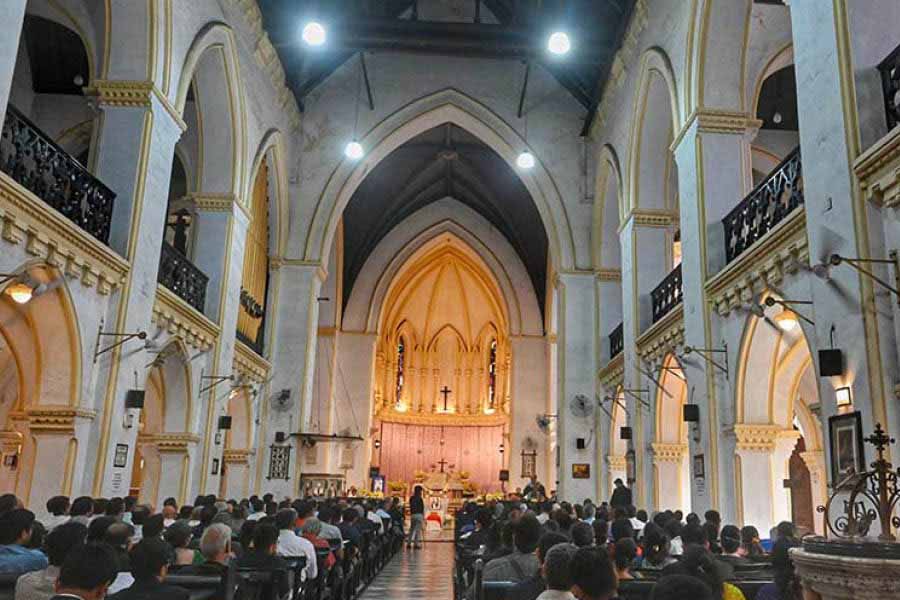Residents of some of the areas that have been sealed by police as a precaution against transmission of Covid-19 have teamed up with local police stations and formed WhatsApp groups to ensure the supply of essentials is not disrupted.
Several neighbourhoods across Calcutta are following a similar model to remain connected over WhatsApp.
Around 120 families in Mudiali, whose movement is restricted by police barricades, depend on a WhatsApp group named “Essential Services” to arrange for their daily needs.
Four police officers of the local Tollygunge police station, including the officer in charge and the additional officer in charge, are members of the group. The cops have the last word when it comes to allowing any doctor inside the neighbourhood or reacting to any emergency that would need a guardrail to be removed.
“We have become a close-knit family now. I never thought we will get vegetables and fruits so easily even after being completely locked down. Whenever we need something, we just put it on the WhatsApp group,” said 66-year-old homemaker Santisri Roy, who lives in a three-storey building in Mudiali.
The stretch under total lockdown - between Lake Avenue and SR Das Road - is a mix of standalone buildings and multi-storeyed apartment blocks comprising around 120 families.
The area, where a resident has tested positive for Covid-19, has been barricaded by the police with guardrails to ensure no one steps in or out without any genuine reason.
The police said the residents had been categorically told that they should only step out to buy essentials such as groceries or vegetables or if there is an emergency.
“For buying essentials, they are allowed only till the barricade, where vendors from the Lake market are turning up every day for 10 to 15 minutes so residents can buy their stuff,” said an officer of Tollygunge police station.
For medical emergencies, residents are either depending on WhatsApp video conferencing with doctors or on the discretion of the local police to allow a doctor to enter the neighbourhood.
“The other day, we had a medical emergency with a 15-year-old boy in our neighbourhood. We managed to connect with a doctor through video call. He prescribed some medicines, which we bought with the help of the police. The boy is fine now,” said Manoj Shaw, a resident of Mudiali and also the secretary of a local club.
The neighbourhood has a doctor and an electrician, who are part of the WhatsApp group.
The “survival strategy” in Bhowanipore’s Puddapukur is slightly different with some residents volunteering to help others by taking care of their daily needs and seeking local police’s assistance when needed.
Sharmila Roy, 49, is one of the 15-odd residents who have come forward with a helping hand to support the daily needs of the people in the area.
“Since I have a scooter, I can move around and collect essentials. We are getting a lot of support from Bhowanipore police station,” Roy said.
Neighbourhoods from Kesd[topur to Salt Lake, in
the northern and north-eastern parts of Calcutta, are banking on WhatsApp groups for uninterrupted supply of essentials.
Arkaprava Bhar, a resident of Prafulla Kanan in Kestopur, said Narayantala Lane, near their neighbourhood, had been sealed by the police. A local club has formed a WhatsApp group where residents can post their requirements.
Partho Chakraborty, a member of the EE Block Residents’ Association in Salt Lake, said they had formed a team of volunteers whose numbers have been given to elderly residents of the block.
“We are mostly receiving requests for medicines. We are noting down every request and trying to deliver the medicines within a few hours,” said Chakraborty.
An official of the Bidhannagar Municipal Corporation said the civic body had asked residents’ associations and clubs to prepare a list of senior citizens who stay alone and persons with disabilities as well as those with financial difficulties.
“In case an area is sealed, we will follow the lists to deliver essentials and medicines,” said the official.
Additional reporting by Snehal Sengupta

